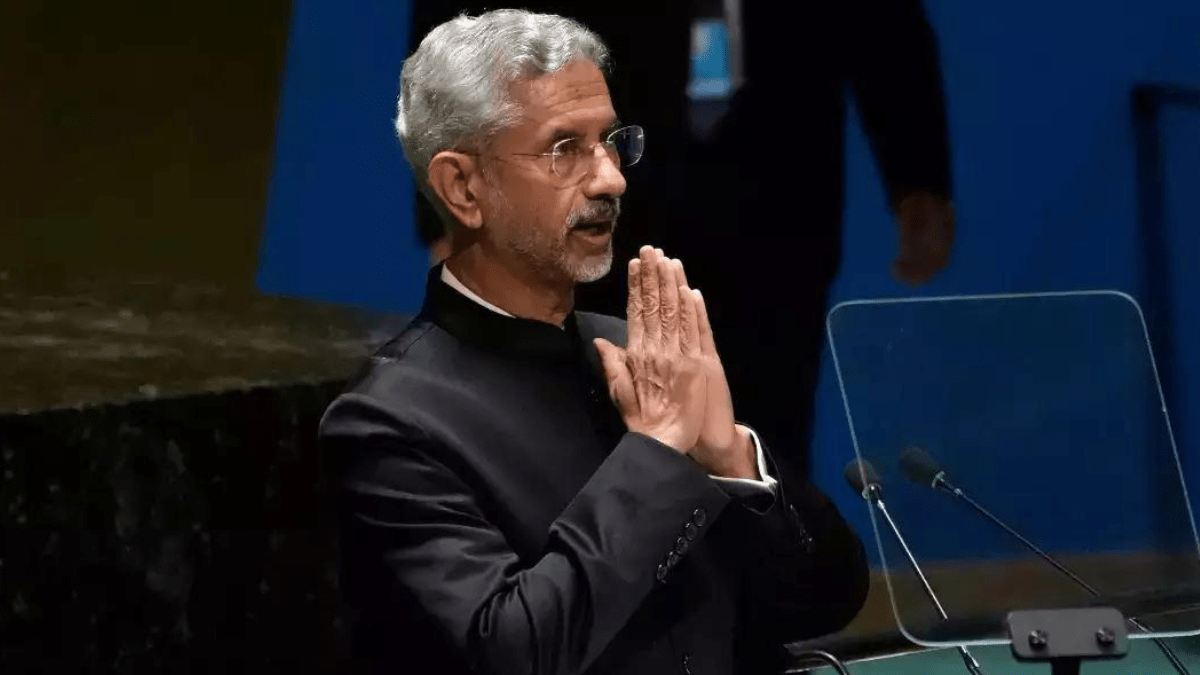The bilateral ties between Canada and India are known as Canada-India relations, or Indo-Canadian relations. India and Canada have had diplomatic ties for a long time and share democratic traditions. As of 2022, the Indian diaspora will number over a million, making India one of the leading immigration source nations for Canada. Based on data from Immigration, Refugees, and Citizenship Canada (IRCC), India accounted for 40% of the more than 800,000 international students studying in Canada in 2022, making it the country’s largest group of foreign students. India and Canada’s bilateral commerce has increased significantly in recent years, and it is expected to reach $8.16 billion in 2023. Canada and India are both members of the Commonwealth Association and the G20, which is a coalition of the biggest economies in the world.
In his remarks at the 9th Raisina Dialogue here on Tuesday, External Affairs Minister S. Jaishankar praised the Indian community in Saskatchewan, Canada. He also greeted the premier of the region.
Writing on X, Jaishankar complimented the Indians for acting as a bridge between the two countries and stated that it was “great to meet” Premier Scott Moe.
According to the census conducted in 2021, there are 15,660 Indians living in Saskatchewan. Between 2016 and 2021, Indian immigrants accounted for 18.4% of all immigrants entering the province.
With over $1 billion in exports, the province accounts for around one-third of Canada’s overall exports to India. The province additionally has a trade and investment bureau in New Delhi.
In response to Canadian Prime Minister Justin Trudeau’s accusations regarding the September 2018 death of a Canadian citizen at the hands of Indian officials, Moe stated to the CBC news channel that these kinds of disputes between Ottawa and New Delhi have to be kept outside of Canada’s commercial relations.
Additionally, in March of last year, Moe met with Union Science and Technology Minister Jitendra Singh when leading a high-level delegation to India.
Cooperation and joint ventures in fields such as deep ocean mining, green hydrogen fuel, electric vehicles, and quantum technologies were discussed during the meeting.
According to Moe, the recent advancements in Canada-India relations have resulted in a genuine multifaceted relationship that is driven by a notable convergence of interests, mutual goodwill, and interchange.
Following the conference, Singh stated that the 2.3 million-person Indian diaspora was strengthening ties between India and Canada and advancing the growth of both countries.
In the meantime, foreign leaders have started to arrive in the nation’s capital for the Raisina Dialogue, India’s biggest geopolitical and geoeconomic summit, which Prime Minister Narendra Modi will open on Wednesday.
The arrival of foreign ministers Lyonpo D.N. Dhungyel of Bhutan, Gabrielius Landsbergis of Lithuania, and Margus Tsahkna of Estonia was announced by the Ministry of External Affairs on Tuesday. Representatives from more than 100 countries will be present at the nation’s premier geopolitical conference, and over 2,500 people from roughly 115 countries will participate in the in-person discussion.
“Chaturanga: Conflict, Contest, Cooperate, Create” is the subject for the 2024 edition, according to a Ministry of External Affairs statement.
